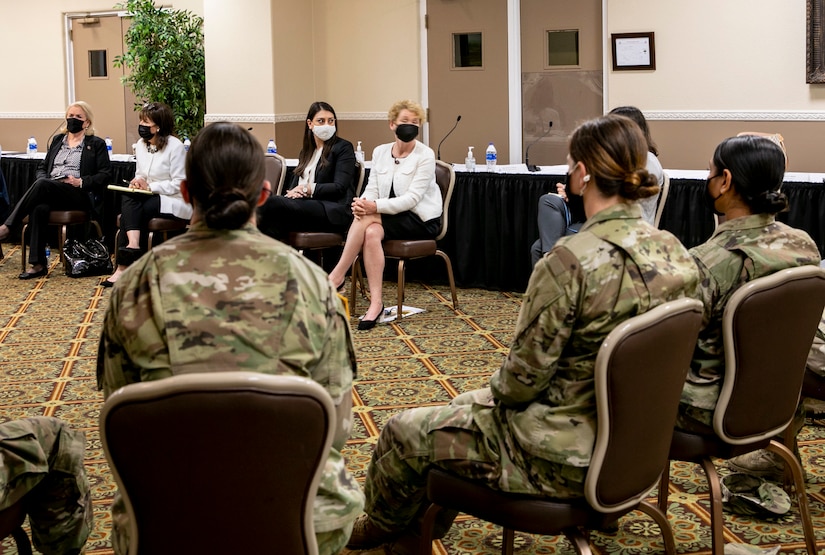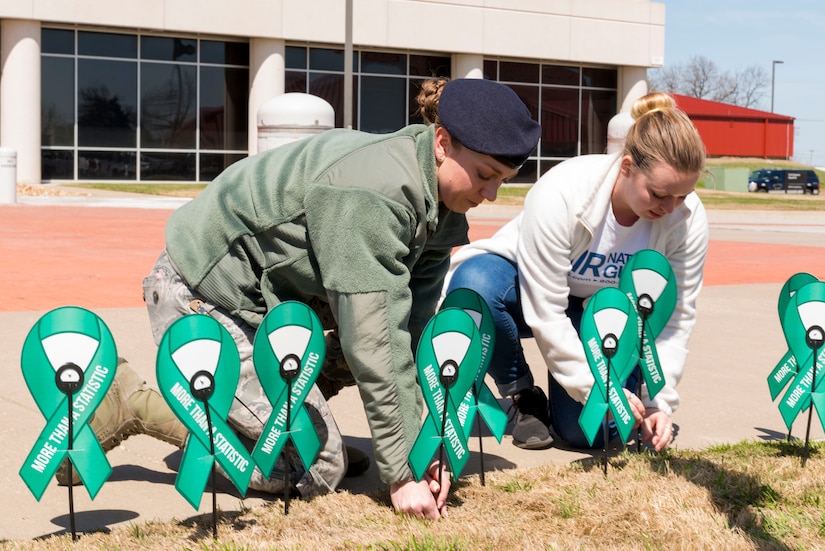May 13, 2021 | , DOD News
Van Winkle testified before the Senate Armed Services Personnel Subcommittee. Her office handles some of the thorniest issues confronting defense, including sexual assault, harassment, diversity and inclusion, and suicide prevention.

Van Winkle used the findings of the Fort Hood Independent Review Commission as a basis for much of her opening statement. The report – commissioned by then-Army Secretary Ryan D. McCarthy following the murder of Army Spec. Vanessa Guillen – was an indictment of culture of the Army base that allowed sexual assault and harassment to continue.
"Points of failure in the system, as reflected in painstaking detail within the pages of the Fort Hood report will consistently undermine all of our actions if not addressed," Van Winkle said. "At Fort Hood, and likely other installations, there was a culture of disrespect and purposeful degradation of others that was unimpeded and left unchecked by the very individuals who hold the responsibility to prevent this type of culture."
This neglect left many asking if military leaders were blind to these infractions or whether they were complicit, she said.
In 2019, DOD introduced strategies and policies to address sexual assault as part of an integrated violence prevention framework. The framework aims to prevent all forms of harm and looks to ensure an inclusive environment for all who serve. "I truly believe that an integrated violence prevention approach with a focus on command climate is how we can best prevent these behaviors," Van Winkle said. "It must be emphasized that anything we have put into place, or will put into place, will be ineffective if members of our military fail to proactively embody the values that we expect."
Van Winkle said changing a command climate or the command culture requires the commitment of all members of a community. "No one gets a pass; no one gets to decide they don't have a role to play," she said. "When you join the military, you are taking on a responsibility to uphold our values and to be a part of a team that rejects these behaviors."
This is even more critical for leaders. "When you become a leader at any level, … you take on a critical responsibility, both when it is easy and when it is not," she said. "This means calling out behaviors that are not in line with our expectations, even if they are perpetrated by a friend."

Van Winkle said leaders who overlook these behaviors erode trust. "Looking the other way allows harm when it otherwise didn't exist," she said. "Every time you fail to address misconduct – even the smallest offensive jokes and comments – someone is watching you, and trust is either gained or it is lost. And once it is lost, you will not easily recover it."
Leaders need to understand that words like protect, defend, dignity, respect and discipline are not negotiable, she said. "As a department we are looking at all aspects of these issues, to shed light in those places we previously did not have visibility, to applaud those [who] are doing the right thing, to appropriately hold accountable those who are not, and to ensure all members can serve safely and honorably," she said.








No comments:
Post a Comment